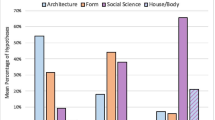Abstract
There has been, so far, little examination of how the treatment of conflict in the school curriculum can lead to political quiescence and the acceptance by students of a perspective on social and intellectual conflict that acts to maintain the existing distribution of power and rationality in a society. This paper examines two areas—social studies and science—to indicate how an unrealistic and basically consensus-oriented perspective is taught through a “hidden curriculum” in schools. The argument centers around the fundamental place that forms of conflict have had in science and the social world and on the necessity of such conflict. The paper suggests that a greater emphasis in the school curriculum upon the ideal norms of science, e.g., organized skepticism, and on the uses of conflict could counterbalance the tacit assumptions being taught.
Résumé
On n'a guère étudié jusqu'à présent comment la façon d'aborder le problème des incompatibilités dans le programme d'études peut contribuer à la paix politique et à l'acceptation par les étudiants d'une certaine perspective du conflit social et intellectuel qui contribue à la préservation de l'actuelle répartition de l'autorité et de la rationalité au sein d'une société. La présente communication étudie les deux domaines des sciences humaines et des sciences pures pour souligner comment, par le truchement d'un “programme d'études camouflé”, on enseigne dans les écoles une attitude qui manque de réalisme et qui est essentiellement fondée sur la notion d'unanimité. Le raisonnement de l'auteur se fonde surtout sur la position fondamentale qu'occupent certaines formes de conflit dans le domaine de la science et des problèmes sociaux et sur l'utilité de tels conflits. L'auteur estime que l'on pourrait faire contrepoids aux hypothèses tacites enseignées à l'heure actuelle, en mettant dans les programmes scolaires davantage l'accent sur les normes scientifiques idéales, autrement dit sur un scepticisme méthodique et sur les avantages des conflits en question.
Similar content being viewed by others
References
Apple, M. W. Community, knowledge, and the structure of disciplines.The Educational Forum, in press.
Apple, M. W., & Popkewitz, T. S. Knowledge, perspective and commitment: An essay review of Thomas Kuhn and Alvin Gouldner.Social Education, 1971,35, 935–937.
Avineri, S.The social and political thought of Karl Marx. New York: Cambridge University Press, 1968.
Berger, P. L.The sacred canopy. New York: Doubleday, 1967.
Berger, P. L., & Luckmann, T.The social construction of reality. New York: Doubleday, 1966.
Center for the Study of Instruction.Principles and practices in the teaching of the social sciences: Teacher's edition. New York: Harcourt, Brace and World, 1970.
Coser, L.The functions of social conflict. New York: Free Press, 1956.
Dahrendorf, R.,Class and class conflict in industrial society. Stanford: Stanford University Press, 1959.
Dahrendorf, R.Essays in the theory of society. London: Routledge & Kegan Paul, 1968.
Dreeben, R.On what is learned in school. Reading, Mass.: Addison-Wesley, 1968.
Durkin, M. C., Duvall, A., & McMaster, A.The Taba social studies curriculum: Communities around us. Reading, Mass.: Addison-Wesley, 1969.
Easton, D., & Dennis, J.Children in the political system. New York: McGraw-Hill, 1969.
Eisinger, P. K. Protest behavior and the integration of urban political systems. Unpublished paper, Institute for Research on Poverty, The University of Wisconsin, Madison, Wisc., 1970.
Garfinkel, H.,Studies in ethnomethodology. Englewood Cliffs, N.J.: Prentice-Hall, 1967.
Geertz, C. The integrative revolution: Primordial sentiments and civil politics in the new states. In C. Geertz (Ed.),Old societies and new states. New York: Free Press, 1963. Pp. 105–157.
Gibson, E. F. The three d's: Distortion, deletion, denial.Social Education, 1969,33, 405–409.
Gouldner, A. W.The coming crisis of western sociology. New York: Basic Books, 1970.
Hagstrom, W. O.The scientific community. New York: Basic Books, 1965.
Hare, N. The teaching of black history and culture in the secondary schools.Social Education, 1969,33, 385–388.
Huebner, D. Politics and the curriculum. In A. H. Passow (Ed.),Curriculum crossroads. New York: Teachers College Press, 1962. Pp. 87–95.
Jackson, P.Life in classrooms. New York: Holt, Rinehart & Winston, 1968.
Kliebard, H. M. Bureaucracy and curriculum theory. In V. Haubrich (Ed.),Freedom, bureaucracy and schooling. Washington: Association for Supervision and Curriculum Development, 1971. Pp. 74–93.
Kuhn, T. S.The structure of scientific revolutions. Chicago: University of Chicago Press, 1962.
Kuhn, T. S.The structure of scientific revolution. (2d ed.) Chicago: University of Chicago Press, 1970.
Lakatos, I. Falsification and the methodology of scientific research programmes. In I. Lakatos & A. Musgrave (Eds.),Criticism and the growth of knowledge. New York: Oxford University Press, 1970. Pp. 91–195.
Lakatos, I., & Musgrave, A. (Eds.)Criticism and the growth of knowledge. New York: Oxford University Press, 1970.
McClure, H., & Fischer, G. Ideology and opinion making: General problems of analysis. Unpublished paper, Bureau of Applied Social Research, Columbia University, July 1969.
Mulkay, M. Some aspects of cultural growth in the natural sciences.Social Research, 1969,36, 22–52.
New York State Bureau of Elementary Curriculum Development.Respect for rules and law. Albany: New York State Dept. of Education, 1969.
Oliver, D., & Newmann, F.Harvard Social Studies Project: Public issues series. Columbus, O.: American Education Publications, 1968.
Polanyi, M.Personal knowledge. New York: Harper & Row, 1964.
Senesh, L. Recorded lessons. In L. Senesh (Ed.),Our working world: Families at work. Chicago: Science Research Associates, 1964.
Sigel, R. (Ed.)Learning about politics. New York: Random House, 1970.
Storer, N. W.The social system of science. New York: Holt, Rinehart & Winston, 1966.
Walker, J. L. A critique of the elitist theory of democracy. In C. A. McCoy & J. Playford (Eds.),Apolitical politics. New York: Cromwell, 1967. Pp. 199–219.
Watson, J. D.The double helix. New York: Atheneum, 1968.
Wilcox, P. Education for black liberation.New Generation, 1969,51(1), 17–21.
Willhelm, S. M.Who needs the Negro? Cambridge, Mass.: Schenkman, 1970.
Wittgenstein, L.Philosophical investigations. New York: Macmillan, 1958.
Author information
Authors and Affiliations
Rights and permissions
About this article
Cite this article
Apple, M.W. The hidden curriculum and the nature of conflict. Interchange 2, 27–40 (1971). https://doi.org/10.1007/BF02287080
Issue Date:
DOI: https://doi.org/10.1007/BF02287080




